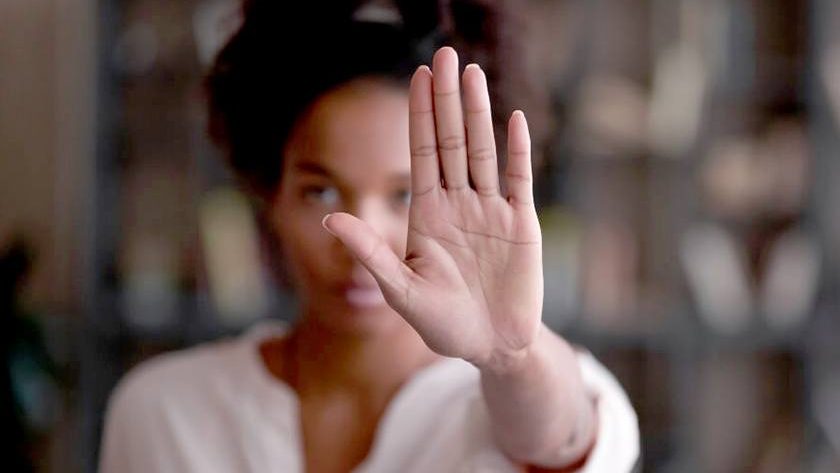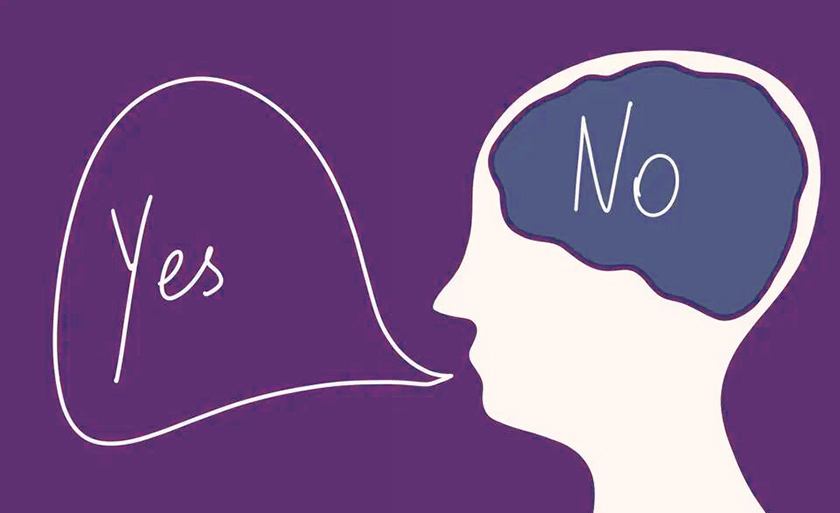Do you often find yourself in a situation when you’ve agreed to do something you actually didn’t want to do, and now you hate yourself and the person who asked you to do the thing? You’re not alone.
We all find it hard to say “no”. It’s a normal human thing and there are ways to fight it and improve your life.
Just imagine being able to say “no” with confidence and without the feeling of guilt that comes with it. This article will teach you exactly how to do that.
Why do we Find it Hard to Say No
As we grow up, we develop a lot of cognitive patterns that make it hard for us to be assertive. Here are just some of the reasons why people say “yes” when they actually want to say “no”:
- We think it’s rude;
- Feelings of guilt;
- We believe we will upset others;
- Fear that they will get angry;
- Fear of not being liked;
- Fear of losing something;
- People are used to you saying Yes.
Different events in our lives cause us to develop these thinking patterns, but they are not the truth. It could be due to how we were raised, for example, if we got yelled at when we didn’t comply, or if we had to do what others wanted from us in order to receive love.
Even if people do get angry or they play upset or try to guilt-trip you, that still doesn’t mean that you should say yes to something that you don’t want to do.
What Happens when we Don’t Say No
You might find it hard to say “no” when somebody wants something from you, and you end up flooded with tasks that you actually don”t want to do.
The result of that is that you will get angry at the person and that anger will stay with you for a long time. The fact is that the person has done nothing wrong for you to get angry at, as you could have just said no to the task and everything would probably be fine.
The stress that comes with taking up too many tasks is also very harmful and could sabotage you in the long run and lead to anxiety and depression.
The more you comply with things you don’t want to do, the more of your self-confidence and self-worth you are losing, which in the long run also leads to depression.
How to Change your Thinking to Become More Assertive
Acknowledge the fact that other people have the right to ask you to do something, but on the other hand, you are in your right to refuse.
Being straightforward about how you feel about a subject means that you are being honest, not that you are being rude. There is a difference and anyone who is trying to tell you that it’s rude to refuse something is wrong.
Try to remember that by saying “no” you are saying “yes” to something else that you really value and that you are not rejecting the person, but the specific request.
Oftentimes in our head, the expected reaction from the other person is much worse than it turns out to be in reality after we say “no”. Remember that the next time you feel afraid to assert yourself.
Ditch the Guilt
The feeling of guilt is the main reason why we are afraid of saying no, and it makes us easy to manipulate. Work on yourself to be able to suppress the feeling or completely remove its roots.
Being able to assert yourself without guilt is actually something that you have the right to.
The Right Methods of Saying “No”
There are many ways to say “no” in a manner that is not going to harm or upset another person. Here are the best of them:
- Providing a short explanation;
- Saying “no” directly;
- Asking to do it another time;
- Expressing understanding.
There is nothing wrong with saying “no” directly, because you really don’t owe anybody an explanation, however, for the sake of communication, you could provide a reason for your refusal.
You could also add that you understand why this is something important for the person, but you simply can’t attend to it.
Asking to do it another time is a good option only if you really want to do it another time. It is not good to postpone something only because you felt uncomfortable declining it.
Don’t Overapologize
Saying “sorry” once is okay, but many people start apologizing and coming up with more and more explanations, which is not only quite unnecessary, but it also weakens your position.
People should be able to understand that you have your reasons for refusing and respect your boundaries. To the ones that don’t respect you, you don’t owe an apology or an explanation in any form.




